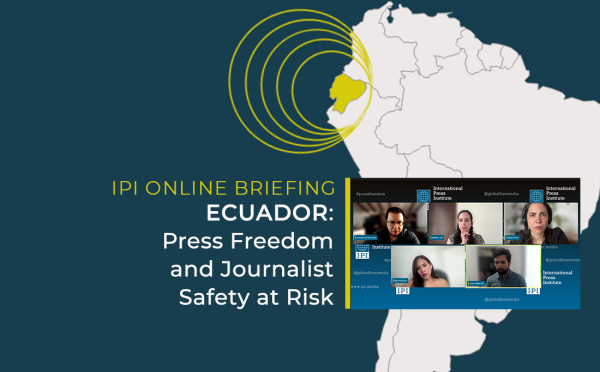Less than a month after its mandate came into effect, Guyana’s new National Broadcasting Authority (NBA) is facing criticism for its domination by members with links to the ruling party, none of whom apparently have substantive experience in broadcasting.
Guyana’s broadcasting board, established by last year’s Broadcast Act, will have the authority to grant—and revoke—spectrum and licence allocations in Guyana’s heavily state-dominated broadcasting landscape. However, the law also gives the president sole power to appoint all but one of the NBA’s members, reserving the remaining spot for nomination by the leader of the opposition.
In early September, former minister of human services Bibi Shadick of the ruling People’s Progressive Party (PPP) was named as board chairperson by President Donald Ramotar (PPP). The president also chose five other members reportedly close to the PPP, including a former army chief, the current head of the Guyana Livestock Development Authority, and a lawyer in the president’s office. A seventh member, Sherwood Lowe, a lecturer at the University of Guyana, was selected by the country’s largest opposition party, A Partnership for National Unity (ANPU, formerly known as the People’s National Congress).
The composition of the board has drawn criticism not only for its apparent lack of broadcasting expertise, but also for a manner of selection that critics believe will politicise the board’s decisions. David Granger, ANPU party chairman, expressed concern over what he called the “overbearing control of the state” in the NBA and vowed to take legislative action to change the terms of the Broadcast Act.
The ANPU was fiercely opposed to the passage of the Act last year. Party members in parliament refused to participate in debate on the bill, criticising the PPP for failing to honour the recommendations of a joint parliamentary committee on broadcasting regulation in Guyana in 2001.
In an editorial published in Kaieteur News last week, Lowe explained that the joint committee had recommended that NBA members be appointed by a parliamentary committee and that the chairperson be elected by those members at the first meeting. In Lowe’s view, the problem with the NBA as currently constituted “is not in the absence of presence of expertise and experience in broadcasting” but rather the perception of government control through the presidential appointment system.
Opposition media have also expressed concerns over the inclusion of ethical and content standards—such as guaranteeing fair and balanced coverage to “any significant strand of thought”—that it viewed as too open to interpretation.
The Broadcast Act was intended, in part, to reduce the State’s control of radio and television by promoting the issuance of private licences. The government currently possesses a radio monopoly and though it has granted a number of private television licences, private broadcasting in opposition strongholds, primarily the city of Linden, has been restricted.
Specifically, IPI learned that the PPP government had declined to re-issue a private television licence to a Linden station, a key demand of city residents who had also protested violently against a rise in electricity rates in July. Granger, the ANPU leader, noted that the “full constitution” of the NBA would facilitate the return of private television to Linden, which, in his view, justified the opposition’s nomination of an NBA despite its overall opposition to the Broadcast Act.
IPI Press Freedom Manager Barbara Trionfi said, “We are concerned that allowing the president alone to select the members of Guyana’s National Broadcast Authority could reduce the Authority’s independence. While we expect current members to strive for fairness in the allocation of frequencies and licences, we encourage the Guyanese government to consider revising the Broadcast Act to include a greater diversity of input when determining the composition of the broadcasting board.”
Trionfi noted a declaration by the Council of Europe Committee of Ministers that pointed to parliamentary appointments, input from non-governmental organisations, or objective selection criteria as methods that have been used successfully in other nations when appointing broadcasting regulatory boards.


